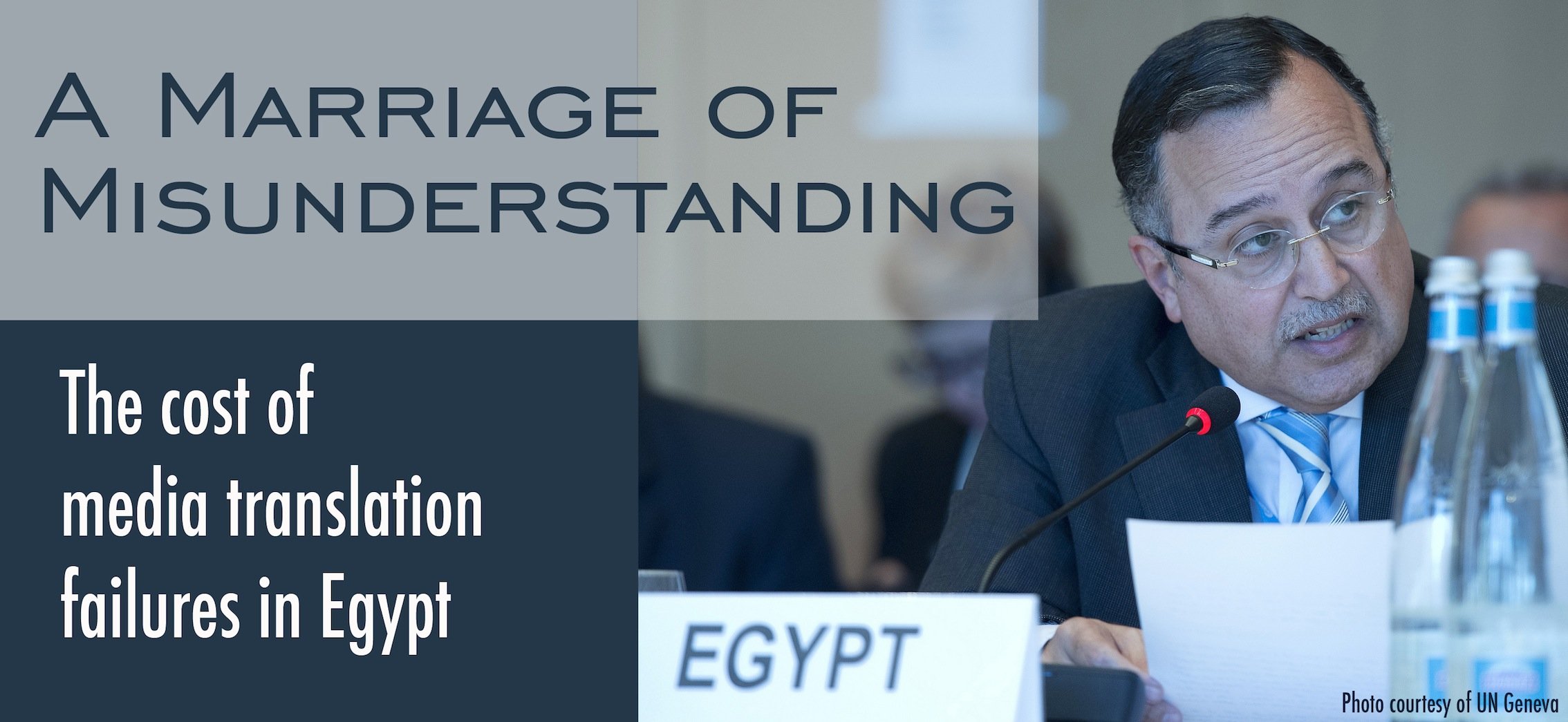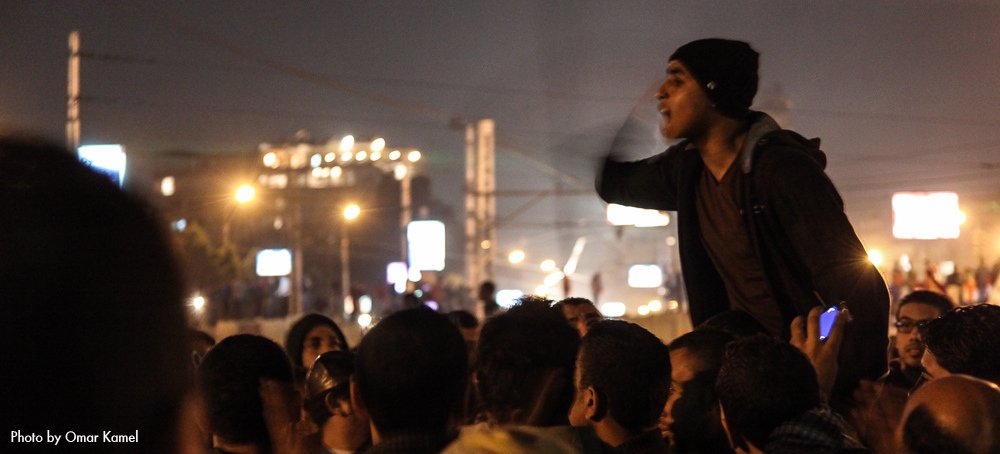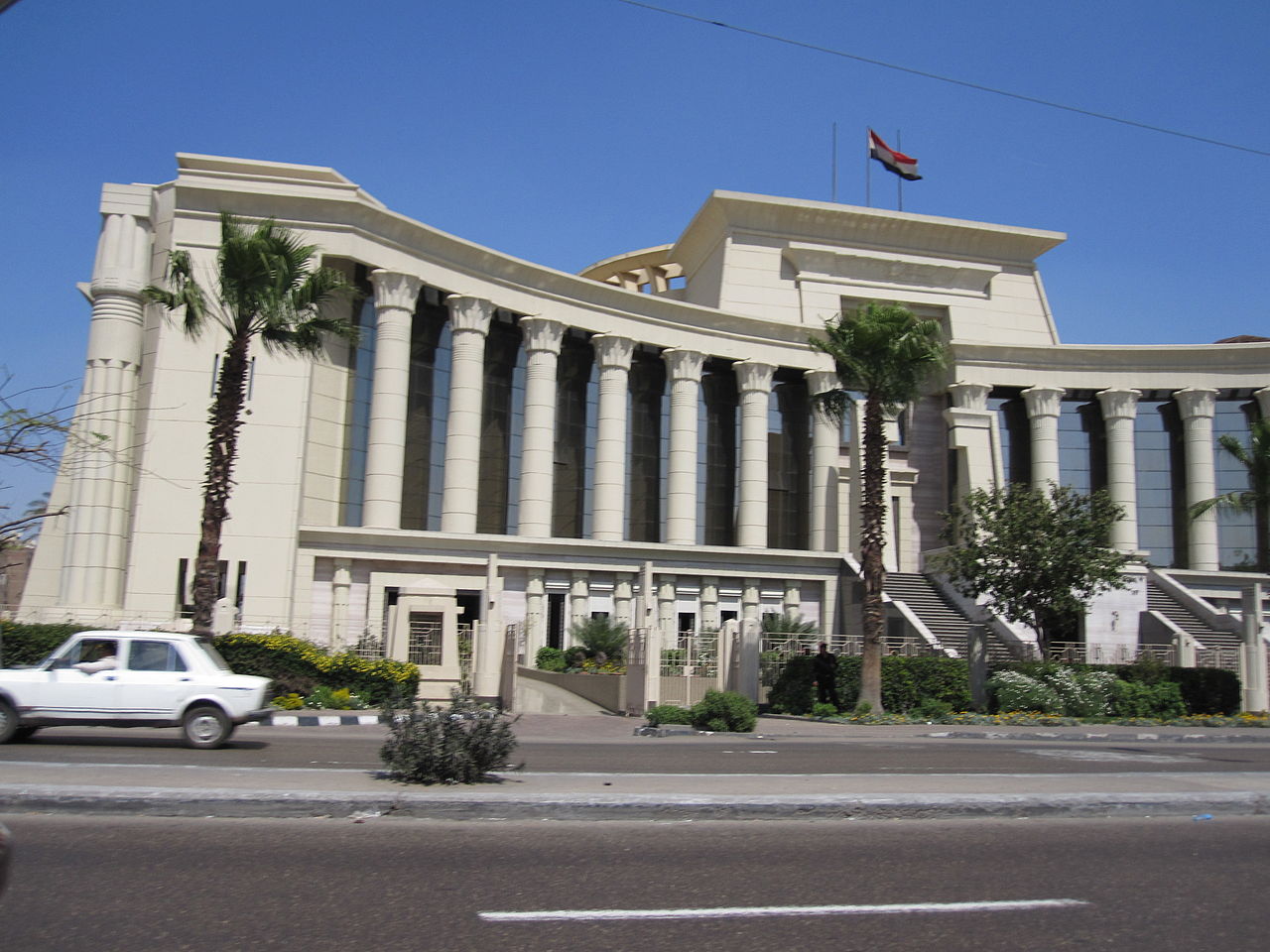Last week a Middle East version of veteran American publication Newsweek was launched by the Dubai-based Pakistani broadcasting company ARY Digital Network. This marks the eighth international edition of the 82-year-old publication. We speak with senior deputy editor Leila Hatoum about the new venture. (Arab Media & Society)
Read More »PODCAST | Tackling Egypt’s National Broadcasting Dilemma
For the first episode of the Arab Media & Society Podcast, Managing Editor Sarah El-Shaarawi speaks with Hafez Al Mirazi, a veteran of Arab and international broadcasting and Director of the Adham Center for Television and Digital Journalism at the American University in Cairo about why reforming Egyptian national broadcasting is essential to its survival.
Read More »Oct. 31, 2015 – Egypt journalist and chief editor referred to criminal court
A journalist and the editor-in-chief of a magazine run by the state-owned Akhbar Al-Youm news organisation were referred to a criminal court on Saturday for publishing and writing an article containing "obscene sexual content." (Aswat Masriya)
Read More »Oct. 30, 2015 – Controversial TV anchorwoman Riham Saeed resigns as channel suspends her show
Al-Nahar TV Network announced Friday the suspension of Sabaya al-Kheir TV program hosted by controversial anchorwoman Riham Saeed, who resigned amid public outrage against her for airing personal photos of a guest on her show without her permission. Last Tuesday, Saeed hosted Somaya Tarek, who claims to have been harassed by a man in a Heliopolis mall. On her show, Saeed appeared to defend the man and blame the woman, implying that Tarek "had brought it on herself." (Aswat Masriya)
Read More »A Marriage of Misunderstanding
In April 2014, Egypt’s then foreign minister Nabil Fahmy used a marriage simile to describe the country’s relationship with the United States. At home, the expression didn’t translate. Muhammad Y Gamal discusses the challenges associated with media translation, and makes a case for the development of a coherent media translation policy in Egypt.
Read More »POLICY REVIEW | After the Arab Uprisings: The Prospects for a Media that Serves the Public.
Managing Editor Sarah El-Shaarawi conducts an in depth review of BBC Media Action's policy breif After the Arab Uprisings: The prospects for a media that serves the public, examining the viability of their proposed recommendations for reforming Arab national broadcasters.
Read More »Covering Al Qaeda: Unpublished excerpts from our 2003 interview with Yosri Fouda
In the spring of 2002 Al Qaeda selected Yosri Fouda, Al Jazeera’s then London Bureau Chief, to interview two of the most wanted leaders within the organization, Khalid Sheikh Mohammed and Ramzi Bin Al-Shiba. This represented the first public admission that Al Qaeda was in fact responsible for the attacks …
Read More »What is There to Celebrate?
It was recently announced that Arab “media experts” are planning to “celebrate” Arab Media Day on April 21, 2016. The theme for the first day of what is meant to become an annual tradition is “The role of the [Arab] media in combating terrorism”. The mockery is surely multi-faceted. One …
Read More »How Egyptian Laws Contradict the Universal Principles of Freedom of Media & Press
“I should not hesitate a moment to prefer the latter.” This was Thomas Jefferson’s decisive answer when asked to choose between “a government without newspapers or newspapers without a government.” Throughout the past four centuries, the universal avowal of democracy and the rule of law have dramatically evolved. As a …
Read More »Media Policies and Freedom of Expression
The School of Global Affairs and Public Policy at the American University in Cairo hosted a two-day conference on Media Policies and Freedom of Expression from February 25-26, 2015. The goal of the proceedings was to help strengthen legal and regulatory frameworks, especially in regard to freedom of expression in Egypt. Hussein Amin and Sarah El-Shaarawi revisit some of the notable discussion from the conference.
Read More » Arab Media & Society The Arab Media Hub
Arab Media & Society The Arab Media Hub







